13+ Sample Home Budget Worksheets
-
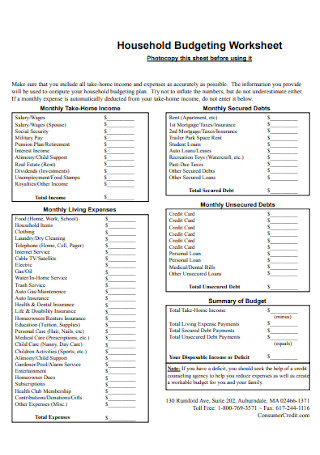
Household Budgeting Worksheet
download now -
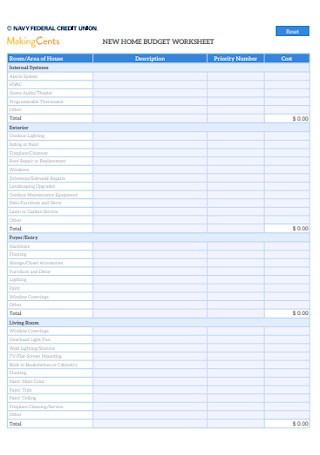
New Home Budget Worksheet
download now -
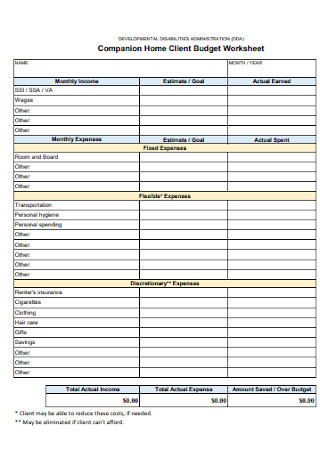
Home Client Budget Worksheet
download now -
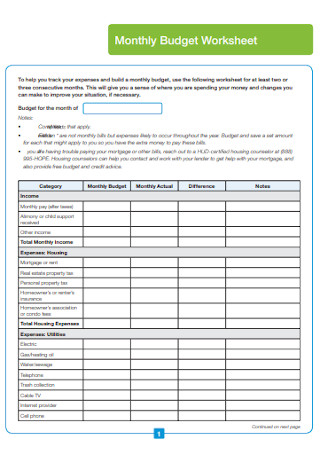
Monthly Home Budget Worksheet
download now -
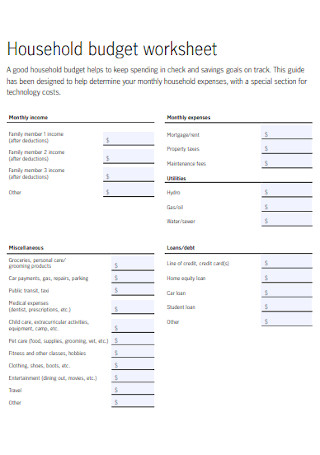
ehold Budget Worksheet Format
download now -
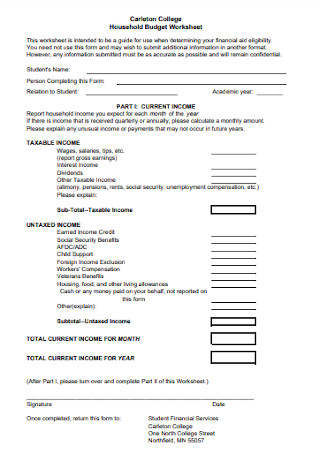
College Household Budget Worksheet
download now -
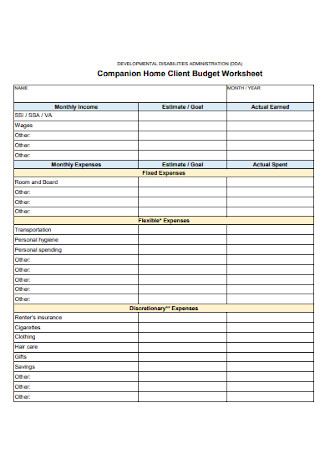
Companion Home Client Budget Worksheet
download now -
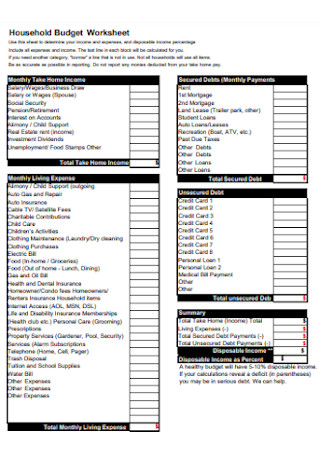
Sample Household Budget Worksheet
download now -
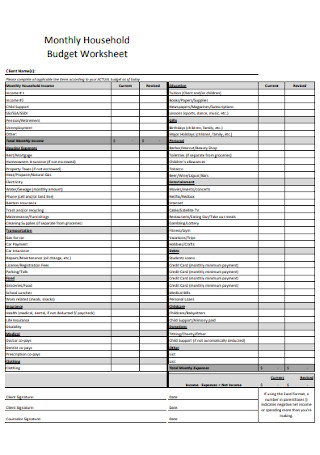
Monthly Household Budget Worksheet Template
download now -
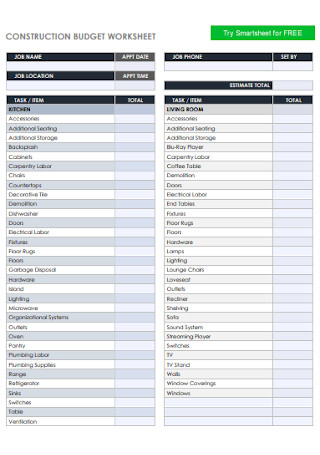
Home Construction Budget Worksheet
download now -
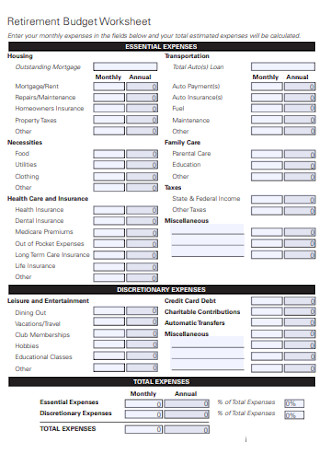
Housing Budget Worksheet
download now -

College Household Budget Worksheet
download now -
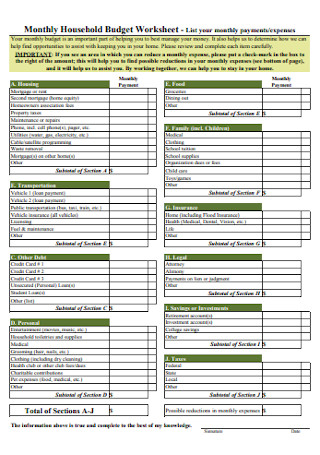
Monthly Household Budget Worksheet
download now
But, like most things that seem to be difficult, there are always ways to lighten the load. We have collected 13 Home Budget Worksheet Samples that you can use to monitor your expenses and avoid spending more than the income that you earn.
What is a Home Budget Worksheet?
A Home Budget Worksheet is a detailed documentation of your income and expenses.
It is best used and would almost be crucial that you set it up beforehand when you start taking into consideration creating a family of your own, Even as early as being a college student, if you have a job that pays, you can start building up on a financial plan and get yourself exposed to concepts of strategic and cautious spending and saving your money for whatever the future holds for you and your household.
You may employ different methods of keeping tabs on your spending habits. You may either choose to collect receipts and bank statements, manually jotting down your new purchases and maybe even all of the mentioned options combined, which by the way is what is most preferred. At least that way, every purchase is being accounted for. Besides, the tracking of where your money goes is basically the heart of most budget worksheets. Regardless of the kind that you are using, it all boils down to your vigilance in proactively keeping track of your every purchase, however big or small. They don’t even have to necessarily be money that you used to purchase something or the bills that you should pay. It can be donations you’ve checked out or money you lent someone. Wherever a cent of your money goes, they have to be listed down.
Benefits to Having a Budget
According to the Household Pulse Survey with data that tracked the negative effects the COVID-19 pandemic left on food, housing, and employment hardships, collected from April 28-May 10 of the year 2021, an estimate of 18 million adults which is equivalent to 9% of all adults comprising the country, reported to be experiencing situations in which they often would not have enough food to eat.
Especially during the early phases of the onslaught of the COVID-19 pandemic that we still continue to battle with to this day even with its decline and whose economic repercussions a majority of us still haven not managed or find it difficult to even being to cope from, making smart decisions and careful planning of our pay seems to be the immediate viable solution that we can resort to.
While a budget worksheet does not just manage and monitor your financial health, it also has long-lasting effects that makes the time and work spent on it irrelevant. We list a few of the benefits you can acquire and witness first-hand from having a Home Budget Worksheet that hopefully should motivate you to create your own with the sample materials that we have provided or seek further consultation from financial advisors to help you figure out the best way of dealing with your money more elaborately:
FAQs
How do I make a Home Budget Sheet?
Step 1:
An important aspect of a Home Budget worksheet is identifying the amount of money that goes in your homes.
Step 2:
Religiously track what you’re spending on. It is encouraged that you get familiar with the 3 basic types of expenses for you to categorize them accordingly and get a bigger overview of your financial activities.
Step 3:
Consistently evaluate your spending habits and be aware of which ones need to go and which ones you can continue practicing and improving. Be prepared to make the necessary adjustments should there be a need to.
What are basic monthly expenses?
They could be any of the following:
- Electricity
- Water
- Mortgage/Rent
- Groceries
- Car Insurance
- Health Insurance
- Student Loans
- Internet
What is the 70-21-10 Rule money?
The 70-20-10 Rule is another way of budgeting your income. It wants you to divide your income in the following manner:
- 70% goes to the living expenses and this includes rent, food, transportation and for the most part your bills.
- 20% should go to your savings which should not solely be intended for your travel goals and the like but for such things like insurances and emergency funds.
- 10% is for your debt payments and loans with those that do the most damage on top of the list.
Remember, to budget is not to limit yourself because you have to police your every purchase. In fact, you budget because you want to have enough money to still have and experience things that make you happy. Have a happy and careful budgeting!
